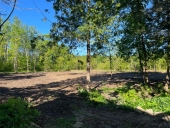Hi there. I've been lurking around these parts for a while now and wanted to say hi. My wife and I are in the process of transforming our house + 5 acres into a food forest. Actually, we are just starting.... again. Truth be told, we owned past properties where we made a go at this. I was thinking how grateful I am for our past mistakes and what they have taught us. No doubt there will be more, but I wanted to share a few, out loud, and ask that you might do the same. You don't have to give me a laundry list, but maybe even your top two mistakes.
Here are mine:
1) To BIG!!! I start too big and burn out trying to do too much at once. This leads to that overwhelmed feeling. Too many
trees. Too much
land. (our 165 acre farm is gorgeous, but it is way more suited to a
Joel Salatin style operation than a homsteading/permaculture operation.... but it sure is putty www.AdamViolin.com/farm ) I recently heard a music sales guru say, "we tend to over estimate what we can do in a year and underestimate what we can do in 10 years." I'm sure the quote wasn't exactly like that, but Derek Sivers is the one who said it in case you care.
2) Design systems that are too complex and require too much work. When we read "One
Straw Rebellion," I am reminded that the best systems work "despite" our input of labor, not because of them. Yes, there's work to be done, but really, for me, if it costs a lot of money, requires huge machinery, or takes a tremendous amount of time, effort, or labor, it's probably the wrong direction. The other day, I wanted to knock down a poison ivy patch. I instinctively reached for my string trimmer. Turned out I had lent it to a friend 2 years ago and couldn't find it. So, instead, I grabbed my still-sharp scythe. The poison ivy was gone in less time than I it would have taken me to try to start my trimmer. (Not to mention the absolute pleasure it was to scythe.) So I am now looking for more and more systems that are "stick and blade" or Joe Jenkins' "it's not waste." Simple is just better IMO.
So, what have YOU learned? What are the mistakes you've made that you'd like to share? I'm very interested to hear.
Thanks!


































